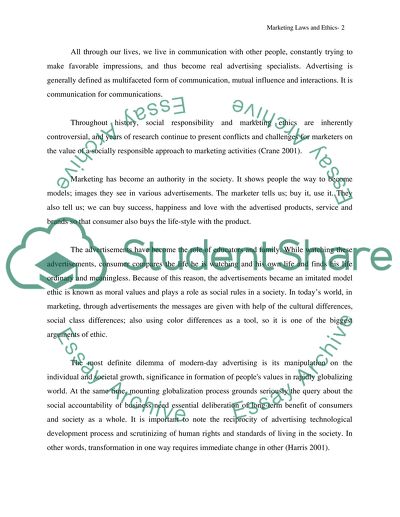Cite this document
(Marketing Laws and Ethics Case Study Example | Topics and Well Written Essays - 2250 words, n.d.)
Marketing Laws and Ethics Case Study Example | Topics and Well Written Essays - 2250 words. Retrieved from https://studentshare.org/marketing/1513837-marketing-law-and-ethics
Marketing Laws and Ethics Case Study Example | Topics and Well Written Essays - 2250 words. Retrieved from https://studentshare.org/marketing/1513837-marketing-law-and-ethics
(Marketing Laws and Ethics Case Study Example | Topics and Well Written Essays - 2250 Words)
Marketing Laws and Ethics Case Study Example | Topics and Well Written Essays - 2250 Words. https://studentshare.org/marketing/1513837-marketing-law-and-ethics.
Marketing Laws and Ethics Case Study Example | Topics and Well Written Essays - 2250 Words. https://studentshare.org/marketing/1513837-marketing-law-and-ethics.
“Marketing Laws and Ethics Case Study Example | Topics and Well Written Essays - 2250 Words”, n.d. https://studentshare.org/marketing/1513837-marketing-law-and-ethics.


